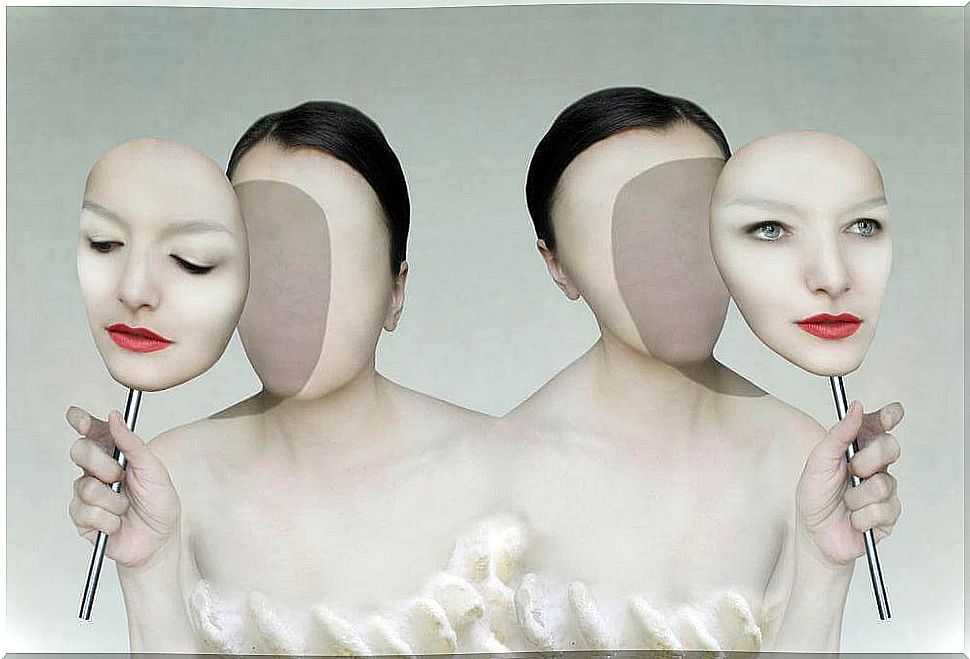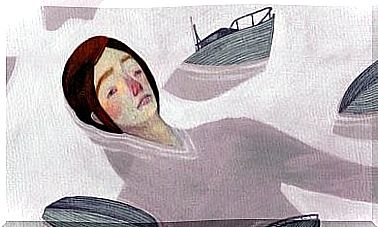The Double Faces Of Our Emotions

“A wise old man stood before an audience, told a joke and everyone laughed. After a while he told the same joke and almost no one laughed, he told the joke over and over until no one laughed … and he said: «If you can’t laugh several times at one thing, why are you crying about the same thing? and again?”.”
What I want to tell you today is very fast, very simple and very simple. There are days when we forget that in order to laugh with all our desire it is necessary to know what it is to cry. Those days of forgetfulness are, without a doubt, the days when we are extremely happy, inside a bubble of illusion and from which we can contemplate that everything is wonderful. Happiness is always so innocent, so pure, so beautiful… That is why, when they ask me what happiness is, I say that happiness is like the favorite girl of our reason. As genuine as it is fleeting, it seems that there are certain moments when its beauty and goodness blind us and we forget that it is necessary to amuse it so that it never gets bored of playing with the same doll.
However, it seems that we are experts in prolonging sadness and worries and making them feel comfortable with us. We know a lot about that, right? On the days when sadness invades us, everything turns gray or even black, we feel like we are inside a tornado and we are not able to tolerate uncertainty, which helps us create a spiral of suffering that we repeat over and over again. thoughts and behaviors of authentic self-defeat.
In fact, it seems that this is something universal, let’s say innate and let’s say it may be biologically predisposed. Even people who have received a rational and compensated education to manage their emotions are able to transform their preferences into absolutely negative and irrational thoughts.
It is a harsh reality but we have to assume that we are truly skilled at making ourselves suffer ; Furthermore, apart from the fact that a social influence is undeniable for this fact, it is found in all cultures without exception.
Have you ever encouraged someone to lament or cry over and over again for the same cause? Probably not, or at least the vast majority of humanity don’t. Most of the self-destructive behaviors that we carry out (crying over and over again for the same reason, postponing activities or responsibilities or not worrying about maintaining discipline) are contrary to what parents, teachers or the media try to teach us as children Communication.
Can awareness of the irrationality of our negative thoughts and behaviors help us? Well yes, but only partially . Human beings are animals of habit and it must be said that even those who have worked this way can revert to their habits and patterns of self-defeating behavior even if they have tried hard to overcome them.
Why is this happening? As we said before, it seems that there is a certain biological predisposition to acquire ways of thinking and behaving tremendously self-defeating to the detriment of self-improvement.
In addition, it is not useful to try to eliminate our sadness because it is part of us, fulfills its function and provides us with information. In fact, if we do, if we vigorously oppose it, we are likely to fall into the same irrationality that we try to avoid and do so on the basis of wildly irrational arguments and behavior. Sadness is a healthy negative emotion (it can make you feel sad that your child has left home but at the same time you understand that there is no reason why they should not) ; However, its insane version, depression, is the one that does not give us any positive aspect (it would be the equivalent of thinking that your child should not have left home and that it is terrible that he did). Both options allow us to repeat negative thoughts over and over again, but sadness helps us understand reality while depression creates an insipid and unhealthy parallel reality.
Returning to the initial reasoning, perhaps the virtue is in the middle ground since both poles are so strongly united that neither can survive without the other. The key is, without any doubt, to accept it. We can always and without exception affirm that in order to see the rainbow, you first have to endure the rain.
Image courtesy of Valentina Photos









